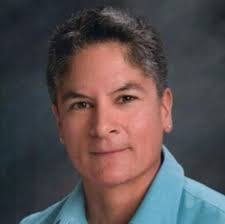Part of the Hiding in Plain Sight blog series
Written by Kee Dunning, author & psychotherapist providing crisis intervention
February 2, 2022 / Forbes

As a psychotherapist, teacher, and lover of people; one of my favorite activities is to present. I am not a big fan of power points or standing still. I also think people with lived experiences can explain a lot better than I can, so a presentation with me entails me facilitating anywhere from 5-8 of my kids [clients] of various ages sharing their stories. My kids tell people what their life is like and what they wished other people knew about what it is like to have a mental struggle. A lack of understanding is a common theme. For a client with autism, this is especially true. What is autism? Autism is a disorder characterized by challenges with social skills, repetitive behaviors, speech, and often non-verbal communication. Autism occurs on a spectrum thus it has a variety of presentations.
Several years ago, my kids and I did a presentation for a group of parents of children with Autism. After the presentation, I was approached by several people with amazing questions and stories to tell. About two weeks later, I received a phone call from a mom who lived in a city 4 hours from where I had given the presentation. I listened quietly while she shared her son’s story.
“My name is Pamela. My son Tanner was about 3 ½ years old when he was diagnosed with Autism. We started speech therapy shortly after he was diagnosed and continued with services to help Tanner be as successful as possible. Despite all of our efforts, Tanner fell behind with his social skills and is mostly non-verbal. Tanner usually repeats whatever is said to him, defined as echolalia. Or he will not answer at all, especially if asked an open-ended question. He doesn’t have friends, no one invites him to birthday parties, he doesn’t get to stay over at a friend’s house or hang out playing video games with the guys. My heart breaks for him, he deserves so much more in life than sitting at home with his parents.
I attended your recent Autism presentation. I really did not know what to expect but let me tell you, I was blown away. I saw kids getting up to speak to a room of strangers about their personal struggles with Autism. I finally understood what my son was going through. Hearing it from the lips of someone going through it made it so much clearer in my mind compared to reading books and listening to the doctors. I decided right then and there that I had to meet you.”
Pam and I talked for over an hour about her son Tanner. She asked if I would be willing to work with her son and explained she would gladly make the four-hour trip to Billings weekly if necessary. I agreed to see Tanner. Pam relayed the following to me several years later.
“I was not sure if Tanner could be helped. Maybe the children at the event were higher functioning than Tanner? We sat down in your office and you started asking Tanner questions and he started answering. I was in total shock.”
Tanner and I worked on answering open-ended questions, behavior skills, personal space, techniques to introduce himself, making small talk, how to behave in public, how to look people in the eyes when talking, and more. I also taught Tanner’s parents how to let him be more independent.
Fast forward 10 years later, Tanner has become a man with a job, drives, hunts, has friends, and can handle himself successfully in public. When upset, he freely shares his feelings. Tanner and I still have counseling sessions and I am currently teaching Tanner how to golf, Tanner has agreed to teach me to play tennis. I have learned so much from Tanner. Never underestimate or assume what someone understands or is hearing or thinking. Tanner told me he would get so mad at people for the way they treated him that his head wanted to explode. His parents realized that they were in that category of people Tanner was talking about. They learned quickly how to meet Tanner where he was, not where they wanted him to be. If one way of communication isn’t working, try something new, don’t give up! Most importantly, always interact with respect, love, and genuine interest in your heart. You may learn more than you can ever imagine if you take the time. Tanner is a gift in my life and in the life of anyone that gets to meet him.
Brandon also moderates a weekly webcast called Brain Waves, conversations with brain health scientists, advocates, and experts. “It’s not just a niche thing anymore. It’s like everyone is starting to feel comfortable talking about mental illness, and it’s just really encouraging and gratifying to see that growth in our society and people’s attitudes around mental health and wellbeing. Part of the conversation around helping destigmatize mental illness is to frame mental health conditions as a source of strength because that’s what I’ve ultimately been able to get through my experience. The concept of neurodiversity is that everyone has unique strengths that they alone possess — part of it is due to their brains, how they develop, and part of it is through their experiences – and it all fits together.”
About the Author

Kee Dunning is a psychotherapist in private practice, adjunct faculty and author, writing on topics such as rural youth suicide risk assessment and intervention, cognitive behavioral therapy, teen dating abuse, bullying, and concepts in communication, anger and conflict management. For nearly two decades, Kee has provided crisis intervention for triage for homeless, trafficked, and at-risk youth and families and their support systems; and was Clinical Supervisor for Graduate Studies in Counseling at Montana State University.
The “Hiding in Plain Sight” Blog is a series leading to the upcoming 2022 documentary Hiding in Plain Sight: Youth Mental Illness, produced and directed by Ewers Brothers Productions, executive produced by Ken Burns, and presented by WETA, the PBS flagship station in our nation’s capital.